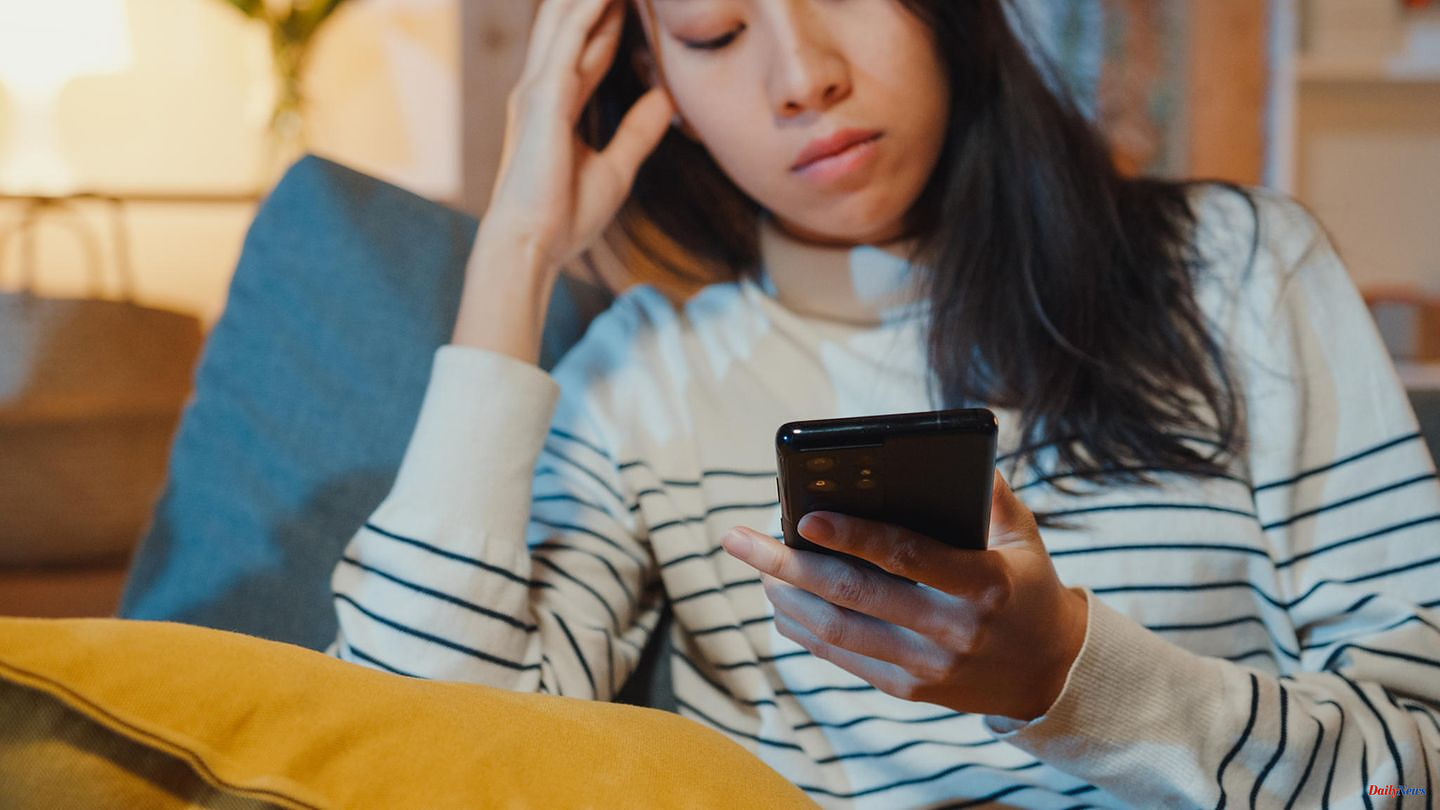Videos or posts on symptoms of mental illness are very popular on social media platforms such as Instagram or Tiktok. Where does it come from?
Siri Frericks: Stories about extreme experiences have always fascinated us - be it in films or novels. We like to consume content that addresses people and their feelings because it touches us emotionally. When a person reports their own mental health problems on Tiktok or Instagram, it can entertain us a bit. But if you are not in balance or do not feel mentally healthy, you can be on the lookout - he or she wants to classify this condition. If I find a post that explains the symptoms of depression, for example, I might find myself in it and start investigating. Another point is that in analogue life, mental illnesses are not yet talked about so openly, so many people have more inhibitions. At this point, social media can offer a framework that is felt to be safer for exchanging ideas.
Is it good that ADHD, depression or panic attacks are talked about on social media so that mental illnesses or disorders come out of a taboo corner?
It can be helpful in breaking the taboo on mental illness if the content is motivating. Someone feels bad all the time but doesn't know why. If he or she now sees a video or post about depression and recognizes the symptoms described in himself or herself, it can be an impulse to seek counseling. Or even start therapy. If further information is linked on social media or addresses where those affected can turn, this is very positive. Your own self-reflection can be stimulated. Shame and guilt can be reduced when users of social media platforms realize that someone whose content they like has the same problems.
And when can it be problematic?
It becomes problematic when I actually don't have depression, but I think I'm depressed because of the content. It can lead me to inform myself in the wrong direction and become confused. It can also be difficult when destructive groups form. Showing who is suffering the most or who is worst off can easily lead to a downward spiral.
There are many posts on Tiktok under the hashtag "selfdiagnosis" that say that self-diagnosis is valid. To what extent would you agree to this and where do they reach their limits?
In the case of a self-diagnosis, the first question is how someone came to the diagnosis in the first place. In psychology, it doesn't work that someone is diagnosed with depression just because the person is listless or shows a loss of interest, for example. This means that it is not enough to recognize yourself in one or two typical symptoms in order to be really sure that you have this mental illness. In psychology, questionnaires, structured interviews and checklists are used to make diagnoses. If various symptoms are presented in a Tiktok video and I tick off a kind of checklist in my head, this is not a reliable source. And if someone only puts the stamp "depressive" on themselves, the question is what this is supposed to achieve. Only when a person seeks help from a doctor or therapist can they find out where the symptoms come from and how they can learn to deal with them. There are also valid self-tests online. The German Depression Aid, for example, offers a short online test that can identify the first signs of depression. Further information and help addresses are also made available there. However, a self-test on the Internet never replaces a diagnosis. Only trained diagnosticians can provide this.
Can such self-tests be useful?
I think it can be good for you to be prepared when going to a doctor's appointment. Especially for people who have depression, such a test can ensure that they perceive their problems as valid. Otherwise, the depression will make them think, for example, that they are not feeling bad enough or that they do not deserve therapy.
What should I watch out for when I want to find out more about mental illness on the internet?
There is information and tests online that may be helpful. However, there are big differences in quality. As with other information, the sources should be checked in advance. Users should check whether the sender seems trustworthy to them. For example, I can check whether an institution or a scientific institute is the sender.
I noticed on Instagram that many influencers casually mention in their stories that ADHD makes everyday life difficult for them, that they are highly sensitive or have a panic attack. Is it maybe also "trendy" to have a problem?
Of course, influencers may mention this because they want to break the taboo on the disease and viewers feel encouraged to be more confident in dealing with symptoms and feelings of shame or guilt. At the same time, emotional stories can also simply attract attention and thus perhaps increase the reach of content creators. And of course there can also be an economic interest involved.
A data analysis by BR has shown that Tiktok users who have contact with videos that deal with psychological problems, self-harm or suicidal thoughts are seeing more and more of this content and that the entire feed quickly consists of this content. How problematic are such filter bubbles?
This is very problematic. There is some research showing that social media consumption (over) per se is not good for mental health. Social media is already about likes, attention and dependency anyway. If a person is in an unstable situation and also consumes this content, they can trigger the person. If a person is actually depressed and having suicidal thoughts, and Tiktok is pouring more and more videos that talk about suicide plans or attempts, it can reinforce the train of thought that life is meaningless. And the arguments that speak against ending one's own life are becoming less and less present and, due to the filter bubble one has gotten into, the arguments for ending one's own life suddenly have more weight. Someone might feel, "The whole internet is telling me to kill myself." This can be very destabilizing, especially for young people who have mental problems.
Many young people are also on social media. What advice do you have for children and young people who suspect that they have mental health problems?
If you have a good relationship with your parents, you will find them to be very good contacts. Otherwise, young people and children should turn to someone they trust. These can be uncles, aunts, grandparents or even teachers. Some schools also have social workers or school psychologists. If the step is too big to approach one person, there are also online offers. For example "crisis chat". There, young people up to the age of 25 can contact trained volunteers via chat.
Do you have suicidal thoughts? The telephone counseling service offers help. She can be reached anonymously, free of charge and around the clock on 0 800 / 111 0 111 and 0 800 / 111 0 222. Advice via e-mail is also possible. A list of nationwide help centers can be found on the website of the German Society for Suicide Prevention.
For children and young people, the number against grief is also available from Monday to Saturday from 2 p.m. to 8 p.m. - the number is 116 111.












